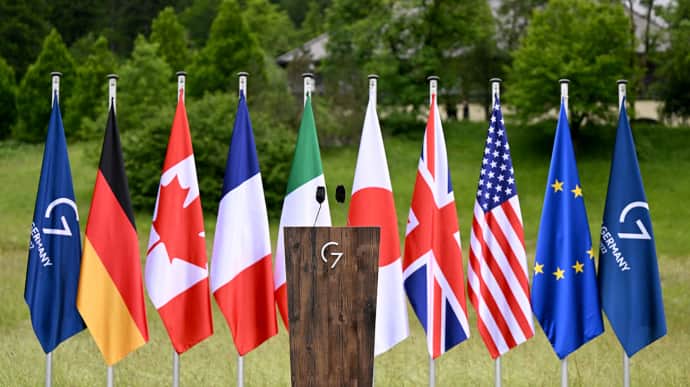The global trade landscape was rattled today as the United States, under President Donald Trump, imposed a 25% tariff on imported cars and car parts, igniting a fresh wave of economic tensions with major trading partners.
The move has prompted strong reactions from Europe, Canada, and China, all of whom have vowed to retaliate in response to what they call an unjustified economic assault.
Germany, home to some of the world’s most prestigious car brands, including Porsche, BMW, and Mercedes-Benz, quickly condemned the decision.
German Economy Minister Robert Habeck declared that Europe “must respond firmly” and ensure the U.S. does not impose trade policies that unfairly target European manufacturers.
“It must be clear that we will not give in to the U.S. We need to show strength and self-confidence,” Habeck stated.
The European Union is expected to introduce countermeasures, with France’s finance minister, Eric Lombard, emphasizing that Europe’s “only solution” is to impose tariffs on American goods in return.
“We are in a situation where we are being targeted. Either we accept it, in which case this will never stop, or we respond,” Lombard said. He added that such action was necessary to “rebalance the playing field” and push the U.S. toward fair negotiations.
Global Backlash and Market Reactions
The announcement of the tariffs immediately impacted global markets. In Frankfurt, stocks for major European carmakers, including Porsche, Mercedes, and BMW, saw sharp declines. French automotive giant Stellantis, the maker of Jeep, Peugeot, and Fiat, also experienced a drop in share prices.
Analysts warn that increased tariffs could severely impact the global automotive industry, leading to higher consumer prices and supply chain disruptions.
In Canada, Prime Minister Mark Carney called the tariffs a “direct attack” on his country’s auto industry. Canada is among the top exporters of vehicles to the U.S., along with Mexico, South Korea, Japan, and Germany.
Carney stated that while the tariffs would “hurt” Canada, the government was exploring retaliatory trade measures.
Mexico, the largest supplier of cars to the U.S., is also expected to respond, with Mexican officials warning that higher tariffs could cause job losses and economic instability in the region.
Economic Implications of the Tariffs
Trump’s latest move is part of a broader strategy aimed at bolstering U.S. manufacturing by discouraging foreign imports.
The president has long maintained that tariffs protect American businesses and encourage companies to produce goods domestically. “If cars are made in America, there will be absolutely no tariff,” Trump reiterated.
However, analysts warn that the consequences of such tariffs extend beyond protecting American jobs. According to the Anderson Economic Group, costs for vehicles imported from Canada and Mexico could increase by as much as $4,000 to $10,000 per car, making automobiles significantly more expensive for American consumers.
The U.S. imported approximately eight million vehicles in 2024, worth an estimated $240 billion—accounting for nearly half of the nation’s total car sales.
The impact is expected to hit American manufacturers as well, as many rely on imported parts. Major automakers such as General Motors and Ford source critical components from global suppliers, and higher tariffs could drive up production costs, potentially leading to job cuts.
International Responses and Trade War Fears
China, which has had a long history of trade tensions with the U.S., also criticized Trump’s decision, accusing Washington of violating World Trade Organization (WTO) rules. “There are no winners in a trade war or a tariff war. No country’s development and prosperity have been achieved by imposing tariffs,” a spokesperson for China’s foreign ministry said.
Japan, another major automobile exporter, warned of a “significant impact” on its economic relationship with the U.S. A government spokesperson labeled the tariffs as “extremely regrettable” and revealed that Japan had formally requested an exemption from the new trade restrictions.
South Korea, which exports thousands of Hyundai and Kia vehicles to the U.S. annually, appeared to be taking a strategic approach. Just a day before the tariffs were announced, Hyundai revealed plans to invest $21 billion in the U.S. and build a new steel plant in Louisiana. Trump hailed this investment as proof that tariffs were “working” and compelling foreign companies to expand their presence in America.
German automotive supplier Bosch also expressed optimism about the North American market despite the tariffs. The company stated that it remains confident in the region’s long-term potential and will continue to expand its business there.
With the new tariffs set to take effect on April 2 for cars and a later date for auto parts, global trade relations remain tense.
If European nations, Canada, and other affected countries impose retaliatory tariffs on U.S. goods, it could escalate into a full-fledged trade war, further disrupting global supply chains and economic stability.
As tensions mount, industry leaders, government officials, and trade analysts are closely watching how negotiations between the U.S. and its allies unfold.
For now, global markets brace for uncertainty, while consumers worldwide prepare for potentially higher costs at the car dealership.

